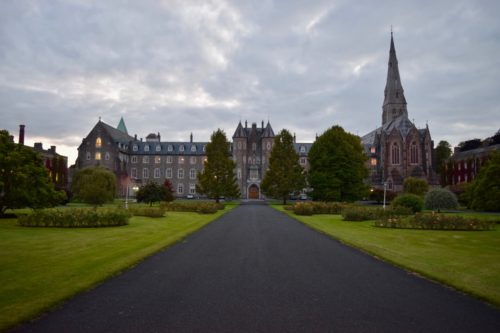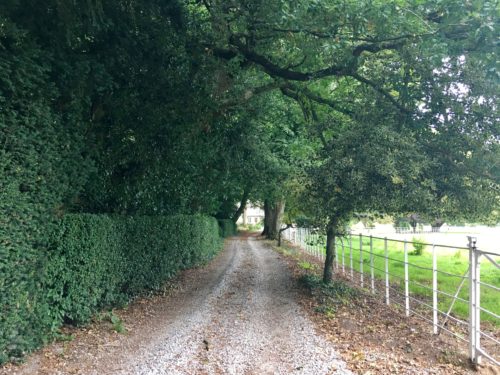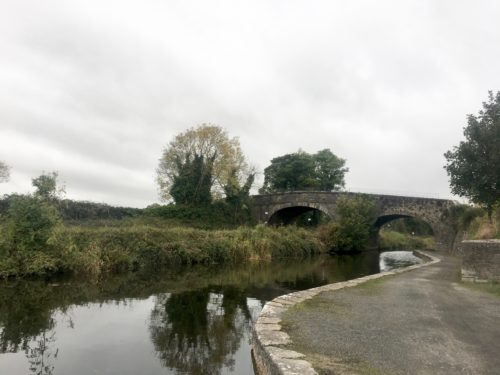I used to run in Haiti under a sun made of fire. As I would pass along the road, a flurry of bare feet, brown eyes, and small arms would emerge from the frames of palm-thatched houses. Although their legs made two strides for every one of mine, they would keep pace with me past mango trees and cow-dotted hillsides until we reached the unspoken borders of their villages. And every day I would be asked, “Poukisa w ap kouri?” “Why are you running?”
I now run in Ireland under a sun I’m not completely convinced exists. As I pass along the canal that connects Maynooth to Dublin, I make eye-contact with wary herons and greet older Irish women attached to matching, canine companions. I weave and curve with the water, the road, and the train tracks through fields of sheep and cabbage. And every time I step out into the seemingly unforgiving wind and often horizontally-approaching rain, I ask myself with a bit of grin, “Why are you running?”
I have juxtaposed climates and lifestyles. I no longer own a goat, eat rice and beans every day, or am required to treat my drinking water. Unbelievably, I now have a heated shower, a turtleneck, and a fantastically operational toilet. And yet, I am still finding similar answers to a singular question: “Why are you running?”
In Ireland, as in Haiti, I am running because it gives me a sense of belonging and deepens my understanding of the people around me. The Maynooth running “regulars” have taken me under their metaphorical umbrella. They, in their t-shirts and short shorts, have taught the mittened, gloved, and beanied me that “t-shock” (“Taoiseach”) is not a rapper but rather the title for a political office in Ireland (a Prime Minister-like position), when to use a few cardinal (yet mildly inappropriate) Gaelic phrases, and how to get the best bang-for-my-quid in the realm of biscuit buying. More profoundly, they have taught me to be unafraid of interacting with the unfamiliar. The Irish ability to strike up a conversation, even while running, is awe-inspiring. I am consistently surprised by their openness and kindness to a total stranger. I have learned that by trading social aloofness for neighborly camaraderie, it is possible to generate an uplifting atmosphere of inclusion and togetherness. I have learned that this is possible anywhere.
I am also running to remind myself that to run is a gift. It symbolizes the fact that I was born with functional limbs, that I am well-nourished, that I have the time to spare, that I am incredibly and unfairly privileged. My studies in Ireland revolve around disease, developing systems, and drastic health inequalities. I am here to learn, to participate in an academic setting, and to develop as a scholar. But already I recognize how the Global Health literature informs my past experiences in Haiti, and offers suggestions and interventions for future accompaniment. And when I run, I remember that it is my fundamental responsibility as a scholar to use what I learn for those for which running is not an option.
On my first Sunday in Maynooth, I attended a Catholic mass in St. Mary’s Chapel. At the end of the homily, the choir sang an old Irish Blessing. I had heard it before as a poem, but it suddenly held new meaning. It begins, “May the road rise to meet you.” I remember thinking that, in so many ways, it feels like the road is. In so many ways throughout my life, the road has. Accordingly, I’ll keep running and learning in the hopes that someday, I will be able to gratefully meet the road half-way.

Maynooth University, South Campus

Maynooth Grounds and Gardens

The Canal: Maynooth to Dublin
